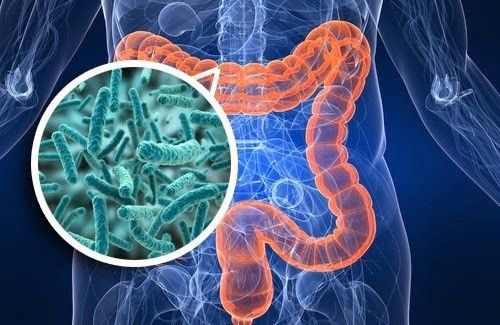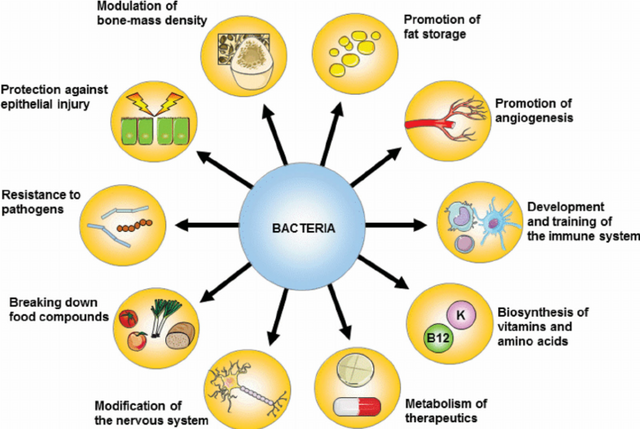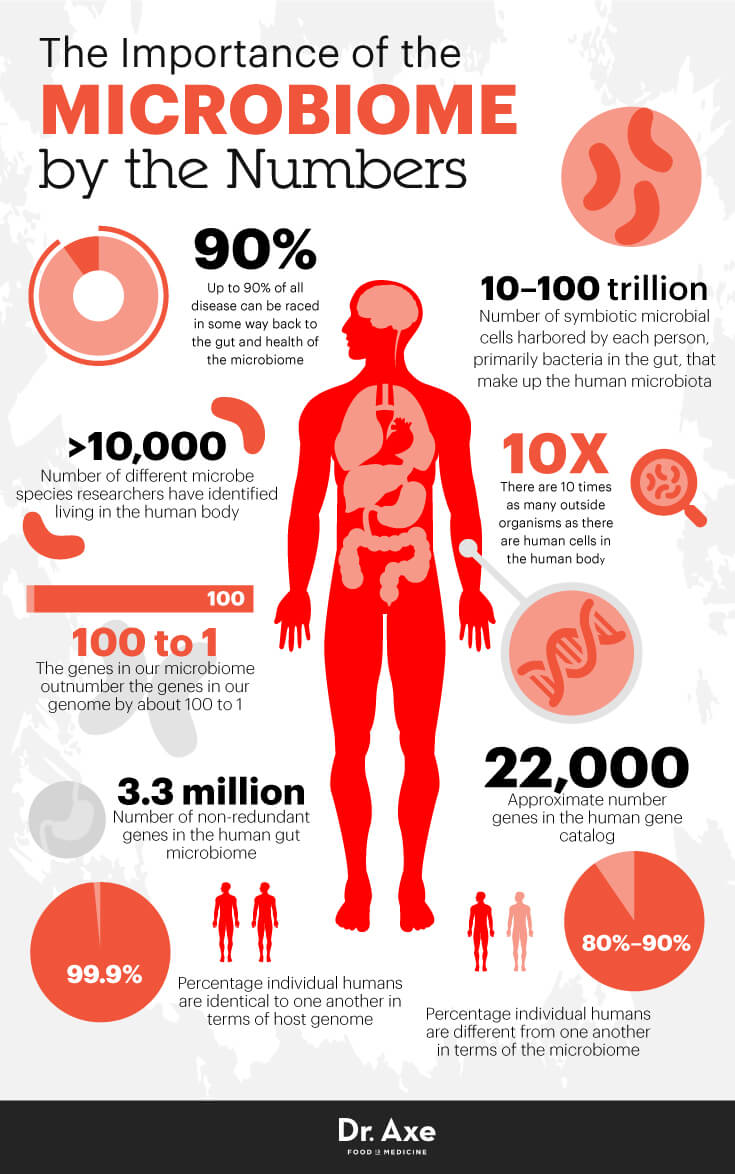Health and the untold truth of your gut micobiome

Inside each and everyone of us are millions upon millions of microorganisms that play a vital role in our health and well-being. Around 80% of the body's immune system is dependent upon organisms that thrive in the digestive tract (gut micobiome). This microbiome is made up of bacteria, yeasts, fungi, viruses and protozoan that affect just about any process inside the body that you could think of. A few of these important processes include the following: food digestion, body weight, mood, energy level, cognitive speed/ability, fight against sickness/disease, and modulation of nerve responses like pain. Bacteria seem to make up the majority of the microbiome and play critical roles in the bodily functions mentioned above.

The astronomical number of different microorganisms living in the human gut is almost unimaginable. Even more interesting than their numbers is their symbiotic relationship with us.

The average lifespan of a bacterium living in a human gut is only about 20 minutes. But during their short lifespans they are extremely active before passing on their genetic information to the next generation. In order for the gut flora to do this at maximum capacity they must be kept well fed and balanced. Here is a great image to reference when wondering how to know if you are keeping your gut micobiome balanced and in check.

The microbiome feeds off the nutrients that come from our daily food intake. A balanced diet is essential to keep gut flora functioning in tip-top shape. In turn the body is able to function in an overall much more healthy state. Sadly, an unbalanced gut microbiome, or dysbiosis, is common today because of our poor choices. The diet of the majority of people today (especially in America) consists of highly processed, genetically modified, nutrient deficient, and sugar saturated foods and meats whom have been subject to treatments of different hormones and anti-biotics during their lifespans. Other important life choices that affect the gut microbiome are stress levels, exercise, illicit drug use, exposure to a high level of anti-biotics, and so many more.

If you are interested in improving your gut microbiome, here are a few suggestions (elaborating on some in one of the previous images). Start with a change in diet. Try to eliminate foods that are saturated with sugar and highly processed. Eat a lot more vegetables and low sugar fruits. Implement fermented foods (like sauerkraut, pickles, kimchi, and kombucha) which will introduce new healthy bacteria. Stop drinking coffee, soda, and alcohol. Sweat a lot through daily exercise. Get in a routine of going to bed at a certain time to get a good night's sleep. Find what works for you in order to de-stress your body (examples: yoga, meditation, reading, writing, etc.). Introduce a regiment of high quality probiotics to take daily (I am not going to recommend any here, but do your research thoroughly and find what works best for you). Avoid antibiotics at all costs, unless absolutely necessary. There is also evidence that adding a prebiotic to your regiment of probiotics can be beneficial. Prebiotics are complex carbohydrates that we cannot digest but probiotics thrive on.

Lastly, if you want to try something a little strange and out of the ordinary, doctors are now offering treatments called microbiome enhancement via fecal transplant. Where the feces from people with certain desirable physical attributes are introduced into the gut microbiome of another individual. I'm not kidding this really exists and somehow is strangely popular among elite cyclists.

The past couple of years have seen a huge increase in the popularity of research on the gut microbiome among the scientific community leading to many of the findings I have discussed. But many physicians seem to be ignorant to the facts regarding the importance of maintaining a healthy gut microbiome and the huge implications this has throughout the body. Or they have been blinded by the profit driven industry of over prescribing drugs for any and every ailment/disorder that our current failing healthcare system promotes (which is a topic all it's own that I intend to take on in another post in the future).
All of this plus more information and statistics on the topic of the gut microbiome are discussed in a great podcast by Joe Rogan in the video linked below. On this episode his guest is Dr. Chris Kesser who is a physician that is extremely intelligent on this topic and treats many of his patients with methods aimed at creating a balance in gut flora. If you take the time to watch the video, they really get into alot of this information at about the halfway mark.
https://m.youtube.com/watch?t=2870s&v=bYOIhmZ0Osg
I have listed my sources below and they have much more information if you are interested in more about the gut microbiome. Thanks for the read and make sure to up-vote if you found this to be beneficial!
Sources:
https://www.drnorthrup.com/how-to-improve-your-gut-microbiome-in-a-day/
https://www.ncbi.nlm.nih.gov/pmc/articles/PMC4290017/
https://www.webmd.com/digestive-disorders/best-way-use-probiotics#1
Congratulations @cjack28091! You received a personal award!
Click here to view your Board of Honor
Congratulations @cjack28091! You received a personal award!
You can view your badges on your Steem Board and compare to others on the Steem Ranking
Vote for @Steemitboard as a witness to get one more award and increased upvotes!